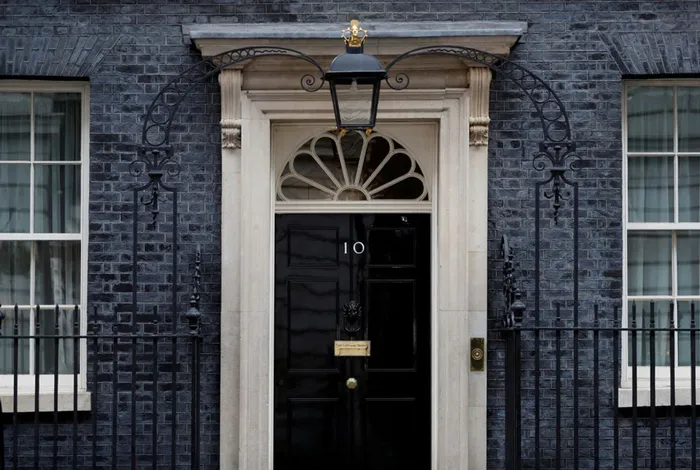Major challenges await new UK leader

File picture: Peter Nicholls/Reuters
By Gwinyai Taruvinga
After a tenure marred by various scandals, Prime Minister Boris Johnson relinquished his post as leader of the UK and the Conservative Party. When he made this announcement, attention immediately shifted towards who would replace him as leader of the UK and the Conservative Party.
The front runners to replace Johnson are former Chancellor of the Exchequer Rishi Sunak, and Mary Elizabeth Truss, Secretary of State for Foreign, Commonwealth, and Development Affairs. Interestingly, the front runners both served under Johnson’s leadership, with Sunak at the forefront of the British economic policies.
Both Sunak and Truss bid for the leadership of the Conservative Party at a time when the UK faces a tumultuous period. The economy has not performed well owing to the effects of Brexit, the impacts of Covid-19, and the Russian invasion of Ukraine. On the economic front for Sunak and Truss, whoever assumes the leadership of the country faces a mammoth task.
The International Monetary Fund’s figures show that the UK has the slowest rate of growth among G7 economies. In April the IMF had predicted that the UK would have a growth rate of 1.2% but this figure has since been revised to 0.5% in the latest rounds of figures that the institution has released.
Addressing the economic quagmire the UK currently faces will be of paramount importance to the next prime minister and judging from Sunak and Truss’s political debates the economy indeed is high on the issues that will need to be addressed.
Of the two, Sunak is deemed to be the “leaver” when it concerns Brexit while Truss campaigned vigorously for the UK to remain in the EU in 2016. One of the key objections to Brexit by Truss was that leaving the EU would have ramifications for doing business with other economies.
Sunak, on the other hand, has been a firm advocate for the British to leave the EU from the formative years of his political career. For Truss, however, she has since backtracked on her stance on backing the “remain” campaign for Brexit in 2016.
By doing this, Truss has placed herself in a strong position as this could influence the Conservative Party to vote in her favour. The Conservative Party in many cases when voting, votes for individuals who embody the ideological values of the party at the expense of policies. This, many believe, might be one of the reasons Truss has surged ahead in some of the polls. Truss’s background, many believe, puts her in good standing to assume the leadership of the Conservative Party.
Sunak’s background is different from, not only Truss but from all previous leaders of the Conservative Party. Sunak is from an immigrant family that migrated from Africa which places him in a unique position in the overall Conservative Party succession debate.
However, he comes with a wealth of government experience. He has served in various Conservative governments in ministries such as treasury to the local government and his more prominent role of Chancellor of the Exchequer. For Sunak, his previous position puts him at the centre of the economic challenges that the UK faced, especially during the pandemic and the aftermath thereof.
Sunak was instrumental in advocating for massive tax hikes under the leadership of Johnson. The corporation tax rose from 19% to 25% and there was a freezing of personal income tax brackets. These policies have been a major sticking point for both Conservative front runners.
Sunak and Truss from the onset have different economic policies and this might be a defining factor as to who assumes the leadership of the Conservative Party. Under the leadership of Margaret Thatcher, her adoption of neo-liberal economic policies was viewed to be controversial within the Conservative Party.
For Truss, a tax increase will make the country unattractive for business while Sunak believes that the tax cuts favoured by Truss will see inflation spiralling out of control. The economic policies, especially concerning taxes, see the two leaders at loggerheads with each other and this could be a defining factor in who assumes the leadership of the Conservative Party.
What remains clear is that Johnson’s successor, in addition to the economic woes, will have the difficult task of addressing Brexit. Events from the last few weeks such as long immigration queues and trucks trying to enter the country have shown the huge ramifications of Brexit in the UK. In addition to this, under the leadership of Johnson, the UK has a strenuous relationship with the rest of the European continent. This strenuous relationship is evidenced through Johnson’s threats to rewrite deals that the UK had agreed with Europe.
Whoever assumes the leadership between Sunak and Truss would have to address this. Moreover, the Conservative Party has been sceptical of Europe and the party will most likely select a leader who is going to toe this line.
If the current polls are anything to go by, Truss has the advantage over Sunak. Truss has also received backing from the chair of the Commons Foreign Affairs Committee, Tom Tugendhat.
This has been viewed as a massive blow to Sunak’s campaign thus further giving an advantage to Truss. As the race for the leadership of the Conservative Party ends, the winner will want to steer the country from the controversial tenure of Johnson, address the economic challenges that the country faces, and ensure that the UK addresses the challenges of leaving the EU.
Tavuringa is a post-doctoral fellow at the Humanities Graduate Centre at Wits University.